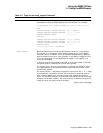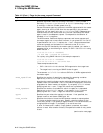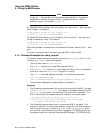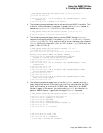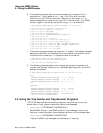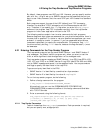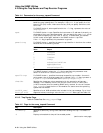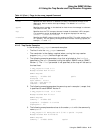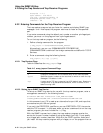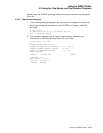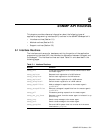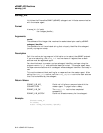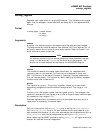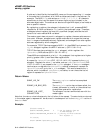
Using the SNMP Utilities
4.2 Using the Trap Sender and Trap Receiver Programs
Table 4–5 (Cont.) Flags for the snmp_trapsnd Command
Flag Description
-h host
Specifies the host name or IP address (in ASN.1 dot notation format) of the
destination host to receive the trap message. The default is
localhost
(127.0.0.1).
-p port
Specifies a port number on the destination host where the message is to be sent.
The default is UDP 162.
-tcp
Specifies that the TCP transport be used instead of the default UDP transport.
If a connection cannot be established, the program displays the warning
connect - : connection refused
.
-v version
Specifies the SNMP version to use for sending the PDU. The valid versions are
2c
or
1
(default). You can specify the flag and value without including a space (for
example,
-v2c
and
-v1
).
4.2.1.3 Trap Sender Examples
In the following
snmp_trapsnd
command examples:
• The first line is the
snmp_trapsnd
command.
• The remainder is the display received when running the trap receiver
program (
snmp_traprcv
) without flags included.
1. The following example generates a trap that originated on the
localhost
(specified by the
agent
parameter) using the default SNMP version (SNMP
Version 1). The
-h host
parameter is not specified, so the trap will be sent to
the local host.
$ snmp_trapsnd 0.0 local 0 0 0
Message received from 127.0.0.1
SNMPv1-Trap-PDU:
community - 7075626C 6963 public
enterprise - 0.0
agent address - 0.0.0.0
trap type - Cold Start (0)
timeticks - 51938978
2. The following example generates the same trap as in example 1, except that
it specifies the use of SNMP Version 2.
$ snmp_trapsnd 0.0 local 0 0 0 "-v2c"
Message received from 127.0.0.1
SNMPv2-Trap-PDU:
community - 7075626C 6963 public
sysUpTime.0 - 51938968 = 6 d 0:16:29
snmpTrapOID.0 - 0.0
3. The following example sends values to the node
mynode
with the community
name
special
.
$ snmp_trapsnd 1.2.3 marley.dec.com 6 33 100 -c special -h mynode
Message received from 16.20.208.68
SNMPv1-Trap-PDU:
community - 73706563 69616c special
Using the SNMP Utilities 4–11



